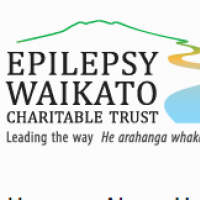Epilepsy Waikato Charitable Trust
Community Organisation

Know what’s happening
Access the private noticeboard for verified neighbours near you. Keep informed about any suspicious activity, send urgent updates to your neighbours when required and discuss emergency planning.
Get to know your neighbours
Browse the directory and start getting to know your neighbours. Don’t want to post to the whole neighbourhood? Send a private message.
Buy, sell and give away
Want to declutter your garage? Buy some used household items? Give away some garden stuff? Become a verified neighbour to browse and post items for sale. Trading is simple when everyone lives nearby.
Community Organisation


Thank you for using Neighbourly
You may receive an email confirmation for any offer you selected. The associated companies will contact you directly to activate your requests.
Maria Lowe from Epilepsy Waikato Charitable Trust
EWCT is running a "Living Confidently" course at the Methodist City Action Centre (London Street) every Tuesday, from 10-11am. It is a friendly and informative course designed for people wanting to know how to access services in our community. Entry is by gold coin donation.
Next week … View moreEWCT is running a "Living Confidently" course at the Methodist City Action Centre (London Street) every Tuesday, from 10-11am. It is a friendly and informative course designed for people wanting to know how to access services in our community. Entry is by gold coin donation.
Next week (21 March) we are going to hear from Craig Wills who is a beneficiary advocate.
Maria Lowe from Epilepsy Waikato Charitable Trust
EWCT invites you to attend our Living Confidently course. This week we have Sally Mutton, from "Dress-to-Success", as our guest speaker.
For further information please go to:
ewct.org.nz...
Maria Lowe from Epilepsy Waikato Charitable Trust
Maria Lowe, the epilepsy advisor talks with Free FM Community Access Radio about a range of epilepsy subjects from triggers to myths about epilepsy. Listen or download the interview below. For more information please go to:
ewct.org.nz...
Maria Lowe from Epilepsy Waikato Charitable Trust
LIVING CONFIDENTLY IN YOUR COMMUNITY
Tuesdays from 10 to 11 a.m.
Methodist City Action and Epilepsy Waikato Charitable Trust invite you to join them for a 10 week programme of fun & friendly information sessions
Do you wish to be better informed about what is out there and to learn more … View moreLIVING CONFIDENTLY IN YOUR COMMUNITY
Tuesdays from 10 to 11 a.m.
Methodist City Action and Epilepsy Waikato Charitable Trust invite you to join them for a 10 week programme of fun & friendly information sessions
Do you wish to be better informed about what is out there and to learn more about the community you live in? Ever wondered how to access a particular service or organisation but didn’t know who to ask? Come and join us for part or all of a ten-week programme of friendly information sessions that will answer many of your questions about managing diabetes, tenancy & housing options, fire safety & smoke alarms, how to make a worm farm and even what to wear for a job interview. Our fabulous speakers will tell you what they and their organisations do and can answer your questions. It’s informative and fun for just a gold coin donation.
• facilitated by Maria Lowe from Epilepsy Waikato Charitable Trust, with a specialist speaker each week.
• Sessions are held at Methodist City Action, 62 London Street in Hamilton.
Tuesday 31st January: Diabetes NZ
Tuesday 7th February:Dress for Success
Tuesday 14th February:Nationwide Health and Disability Advocacy Service
Tuesday 21st February: Tenancy Matters
Tuesday 28th February:Environment Centre
Tuesday 7th March: Life Unlimited
Tuesday 14th March: NZ Fire Service
Tuesday 21st March: Beneficiary Advocacy
Tuesday 28th March: Warm up your home
Tuesday 4th April:Work and Income
Maria Lowe from Epilepsy Waikato Charitable Trust
Epilepsy affects 1 in 100 people, and most have their first seizure in childhood. The largest group of people with epilepsy is children under the age of five.
There are many types of seizures with varying degrees of severity. Some types of childhood seizures are benign (the child grows out of them… View moreEpilepsy affects 1 in 100 people, and most have their first seizure in childhood. The largest group of people with epilepsy is children under the age of five.
There are many types of seizures with varying degrees of severity. Some types of childhood seizures are benign (the child grows out of them and his/her development and intellect are usually normal). Some types are more serious and are associated with other problems. If your child has a syndrome you can receive more information from this website. www.epilepsy.org.uk...
Children with epilepsy have a wide range of learning abilities. Epilepsy does not necessarily
hinder learning and skill development, but many children do experience learning issues which may include ongoing motor skills or cognitive functions, as well as a difficulty acquiring new skills or knowledge.
Anti-epilepsy drugs (AEDs) are commonly used for the treatment of epilepsy and most children’s seizures are controlled with their use. All medication needs to be taken regularly every day, and compliance in taking them is essential in maintaining seizure control. Status epilepticus (or non-stop seizures) is a serious medical emergency. Phone 111 for help.
All AEDs can cause unwanted side effects and an epilepsy specialist will work to alleviate them where possible. Report all side effects to your specialist. It is important that your child remains on his/her medication at all times unless directed otherwise by your epilepsy specialist.
Establish with the epilepsy specialist a comprehensive care plan for your child.
For those children with refractory epilepsy, the ketogenic diet (which is high fat, adequate protein, low carbohydrate) has been used to treat seizures, and is often seen as a last resort. The body burns fat, not sugar, for energy (ketosis). The ketogenic diet is rigid, and strictly calculated, and requires commitment by both the parent and child. Children on this diet cannot deviate from it. Specialist advice and support are essential.
Some children with uncontrolled seizures may be candidates for surgery, or the use of a vegal nerve stimulator. Your epilepsy professional can advise about these options to help establish seizure control for your child.
Safety in the home and at school is important for all children with epilepsy. A risk management plan should be formulated with your child’s classroom teacher and school
Ask for information, help and support from your EWCT epilepsy adviser
Help your child to enjoy his/her life.

 Loading…
Loading…
Are you sure? Deleting this message permanently removes it from the Neighbourly website.
 Loading…
Loading…
© Neighbourly 2024
